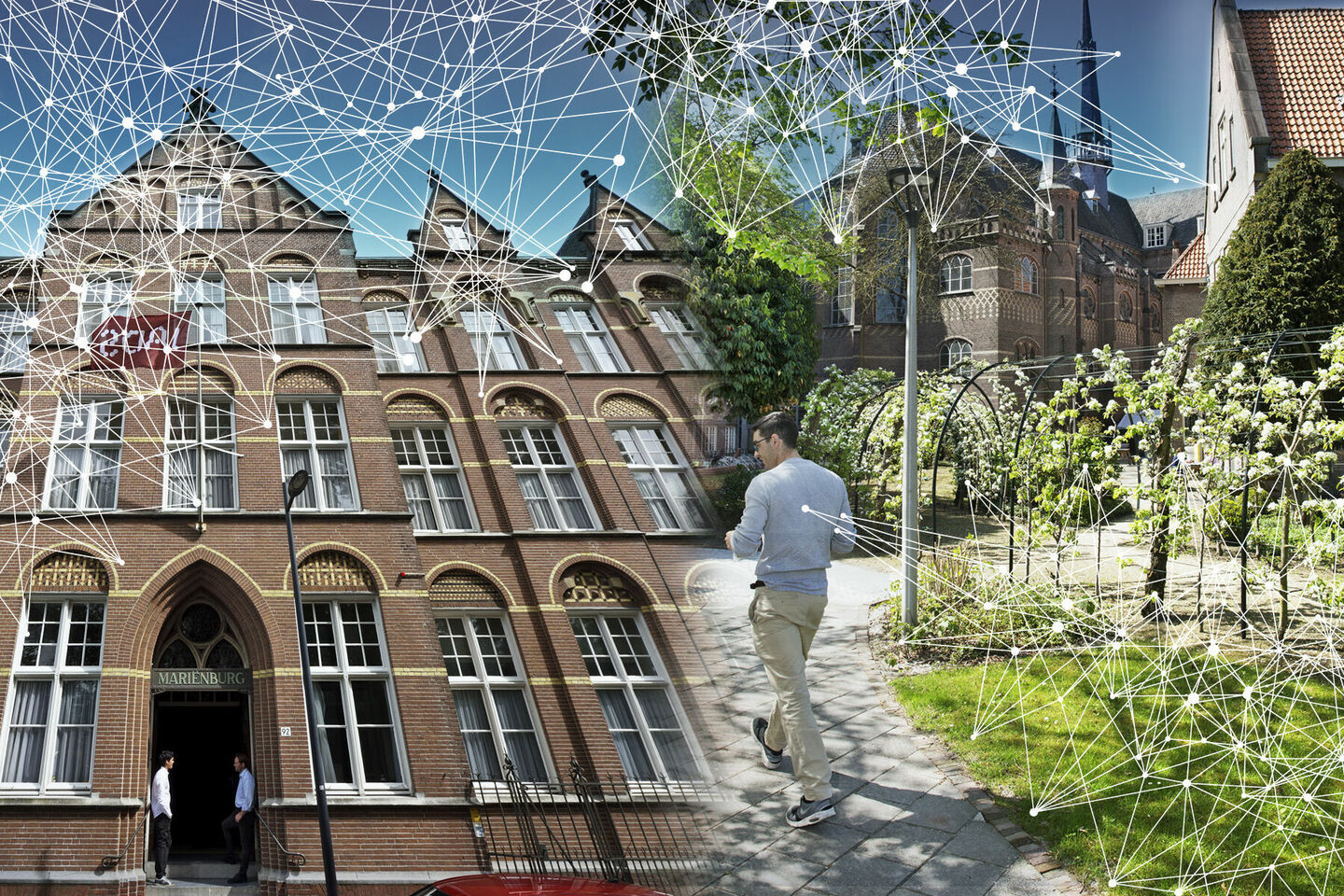
Big data is booming in Brabant
Two years ago the universities of Tilburg and Eindhoven set up the Jheronimus Academy of Data Science (JADS) in Den Bosch. To produce data scientists capable not only of analysis, but also of programming and reflecting on ethical issues, and to bring together the researchers of the two founding institutions. Together with Univers, the magazine of the Tilburg University, Cursor tried to figure out what this big data showpiece has produced sofar.
North Brabant, a province usually known for its mega animal stalls, pigs, meadows and farms. But in the very near future it should gain a reputation for being the place where entrepreneurial scientists let loose their algorithms on the world's rapidly growing data mountains. In the heart of the region, within walking distance of Den Bosch central train station and housed in the Mariënburg convent, is the Jheronimus Academy of Data Science (JADS). Here, data scientists are being trained. The former Den Bosch convent is the focal point of the cooperation in the field of data science between TU/e, Tilburg University, the province of North Brabant and the municipality of 's-Hertogenbosch. A far-reaching cooperation that in the past would have seemed highly improbable.
Different
“These universities are so different from one another, it's almost impossible to imagine,” says Emile Aarts, since June 2015 Rector Magnificus of Tilburg University, but who has a long history in Eindhoven, a period he concluded as Dean of the Department of Mathematics and Computer Science. According to Aarts, engineering sciences take center stage in Eindhoven and teams work there on hardware and software systems. In Tilburg legal, economic, and sociological research are the order of the day.
Many years ago, the realization dawned in Eindhoven that they needed to do something with data, but they didn't have all the necessary expertise in house, says Aarts in a spacious meeting room in the convent building. “A dialogue with Tilburg was started. They 'clicked'; these universities complement each other.” The choice of Den Bosch as the location was an obvious one: the city had always wanted a university, had suitable premises, and is situated between the two university cities.
Financial risk
A project of this size can carry a financial risk, but it was not long before the financial side of things was secure. The municipality bought and renovated the former convent while the province used innovation funding to pay for pre-investments to get JADS up and running and keep it going. Counterbalancing this investment, which adds up to twenty million euros spread over a ten-year period, is the willingness of the two universities to each invest another twenty million in data science. To make this commitment, says Aarts, the universities won't even need to pull out their checkbooks: they are using their own people, who would be doing this work anyway.
In the summer of 2016 work got underway readying part of the monumental building for its future users, and in December of that year JADS was officially opened by Queen Maxima. In early April 2018, when we visit the former convent, the building has undergone subsequent renovation work. Aarts is here one half day a week, to see what is going on with his own eyes. Otherwise, the figures and news concerning the developments seem highly abstract. Which is a feeling shared by many back in Tilburg and Eindhoven. Especially since a concise budget did the rounds of the co-determination bodies, showing a shortfall of 4,75 million in 2018 in place of the planned 3.34 million euros.
Expenditure below the line does not mean the universities have to dig deep into their pockets immediately, but does mean the grant pot is emptying more quickly. Nonetheless, the university boards are not worried. Emile Aarts knows that there is more happening in Den Bosch that was foreseen, and so it is only logical that the funds are being spent more rapidly. Eindhoven's Board President Jan Mengelers shares this view. According to Mengelers, the people in Den Bosch are to be complimented on what they have achieved. He told the members of the Eindhoven University Council some time ago that, in his opinion, the original business plan was in need of an update. In the meantime, the co-determination bodies are left with some questions. In Tilburg this even led to a negative opinion of the budget being given. Eindhoven's University Council seems to find the situation less problematical, but will nevertheless be paying a visit to their colleagues in Tilburg for further discussions. So what are they actually doing over there in Den Bosch?
“We've secured more than we expected,” says Academic Director Arjan van den Born in his office. And by ‘more’ Van den Born means: more students, companies, startups and projects. In a short time, close connections with trade and industry have been forged, which is not to say that a knowledge factory is being set up, that runs to suit the customer's wishes. “Our research must be fundamental and independent.”
The location offers all kinds of benefits. “JADS could never have worked if it had remained limited to Tilburg and Eindhoven,” says Van den Born. It works because people share a single office or lecture room. “That's where they start understanding each other.” Students are able to find companies, companies scientists, and so on. By no means unimportant, given that at JADS it is not just students they want to train. Knowledge of data is needed throughout society, and trade and industry is no exception. Accordingly, there is plenty of professional education going on.
Ethics play an important role at JADS, says Van den Born: “That's all about how you handle data transparently and meticulously, in a confidential manner. We do research, for example, on the transparency of algorithms. Do we really know exactly what it is they do?”
Students
Seated in the former convent are students of the two-year Master's in Data Science and Entrepreneurship. Much is expected of them, more than just reading books. They must make models, build solutions, develop market strategies, and not be afraid to tackle ethical-legal issues. They receive teaching in the domains of data engineering, mining, decision-making, entrepreneurship, and society. There are overarching courses, in which knowledge is applied to cases taken from trade and industry. And underlying all this is a skills pathway, which starts on day one with an assessment and the allocation of a coach. While it is not mandatory to do so, many students also start their own company.
"You are challenged to pitch"
Maaike Blok, masterstudent Data Science and Entrepreneurship
“I was involved in discussions held by the TU/e University Council about the policy and the procedures being pursued by JADS. That sparked my interest. I took the Pre-Master's course and planned it such that the electives contributed towards my Bachelor's in Industrial Engineering and Management Sciences. I was afraid of being swallowed up by some sort of programming bubble. But here you are challenged to pitch, to brainstorm, and to work in groups with people from all kinds of backgrounds. That is really cool. Privacy has become an important issue, due mainly to the discussions about Facebook. It is a problem that is often cited, but it isn't paid a lot of attention during the program. To my mind, you don't need to be worried about anything unusual happening to your data if you have nothing to hide. If you don't avail yourself of data, you hinder your research. When you enter the job market you'll be unique, I think, because data science is a fledgling study. Once I have graduated, I can see myself working for an e-commerce company, where I'll be able to use data to improve the strategy.”
The courses are often taught by someone from Tilburg and someone from Eindhoven; the same applies to thesis supervision. Datasets are used in almost all courses, says Director of Education Willem Jan van den Heuvel. “If, say, the issue at hand is which privacy model works best for iTunes, we aren't led by our intuition, but by hard data.” Completing the thesis requires not only writing a paper, but also that a project is delivered for a company (possibly one's own) or government.
Moreover, the education itself must be innovative in terms of using new learning approaches, says Van den Born. “As a data science institute, you have to set a shining example. And it's easy to see that often students can no longer summon the motivation to watch a talking head.” Nevertheless, for the time being, talking heads are the hard reality, says senior policy officer for education Carlien Geelkerken. “First of all, we want to have implemented a good curriculum.” That too requires continuous attention. In the early days, for example, there was some overlap. “And we need sponsors, because what we are doing is expensive.” This matter is already being discussed.
A student from Eindhoven wouldn't blink twice at the prospect, but for one from Tilburg it is a novelty: living on campus. Den Bosch offers the chance. There are 77 residential units in the former convent, accommodating 88 people. These are leased by the owners of the building to, among others, lecturers, PhD candidates and others involved in JADS. “This creates a real campus feeling,” says Managing Director Angelique Penners. At night, the lecture rooms and offices are closed to the residents, but in time the premises should be open 24/7.
Research
Over the past eighteen months, a lot of hard work has gone into setting up the research arm of JADS. Arjan Haring, research consultant at JADS, points out that much of the research is still in the assembly phase, but that having a physical place where researchers can meet one another is already felt to be a huge plus. In addition, the close involvement of trade and industry in JADS is vitally important to future developments.
Based on his own experience, professor Jack van Wijk, Academic Director of the Data Science Center Eindhoven (DSC/e), concurs fully with what Haring has to say about the importance of JADS as a meeting place. The conversations he has had over the past eighteen months in Den Bosch with researchers in other disciplines from both Eindhoven and Tilburg were a great help when it came to writing a successful NWO proposal in his own field of expertise: the visualization of data. He received a grant of 700,000 euros, enough to fund three PhD candidates, supervised by a broad range of researchers. Van Wijk regards this as a true JADS project. The research focuses on the question of how complex predictive models that have emerged from algorithms can nonetheless be represented in an understandable way. According to Van Wijk, this means putting what is happening in the model quite literally in the picture, “because only then are people prepared to trust models of this kind.”
Eindhoven looks at the scope for application in technology, and in Tilburg the focus lies on the application of data in trade and industry
The three data science centers at Eindhoven, Tilburg (DSC/t) and Den Bosch (DSC/b) also provide the basis for the research done at JADS. Efforts are complementary and there is some overlap. In both Tilburg and Eindhoven, for example, research is being done on new fundamental techniques such as machine learning, says professor Dick den Hertog, Academic Director of the Tilburg center. Den Hertog: “It is with regard to the applications that the various centers distinguish themselves. In Den Bosch it is all about interdisciplinary research with a focus on entrepreneurship, Eindhoven looks at the scope for application in technology, and in Tilburg the focus lies on the application of data in trade and industry.”
The Social Good
According to Den Hertog, data can be applied in marketing, for example, to sell products, but also in recruitment and selection, to find the best candidate. Or to help humanity, with particular emphasis on those most in need of such help. Under the banner of Data Science for the Social Good he wants to merge and further expand two current research projects.
The first is a project by Sterk Huis and CentERdata: identifying problem families at a preventive stage, so effective help can be offered early on. The other project concerns the use of data for humanitarian innovation. The World Food Program run by the United Nations brings together food from all over the world in order to put a daily meal on the table during a famine, as is now happening in Yemen, offering maximum nutrition at the lowest possible distribution costs. “A gigantic puzzle,” says Den Hertog, “but one that is already being better pieced together with the help of data and algorithms provided by DSC/t. An estimated one million additional people have already been fed in Syria thanks to this input.”
Pioneering spirit
The pioneering spirit is firmly entrenched in Den Bosch, according to Van Wijk. “With professor Arjan van den Born, the organization has a extremely creative person at the helm, someone who isn't adverse to wild ideas. Den Bosch offers researchers the chance to take a look around each other's workshop, to build an even broader network, and to make sure everyone is singing from the same hymn sheet. We are now ready to start the next phase, in which we'll be fleshing things out a lot more and setting out the lines for the research labs. Researchers from Eindhoven and Tilburg should be on site in Den Bosch more often, to offer guidance and actively seek funding.”
Van Wijk hopes that everyone from Eindhoven, Tilburg and Den Bosch involved in data science and JADS will increasingly see themselves as part of a whole, not as a collection of islands. But he realizes that in this relatively new collaboration, ‘political’ bumps will appear in the road now and then. It is understandable but still a pity, he feels, because they waste time and effort. To foster the assimilation, he has arranged for all the documents produced by DSC/e to now carry a prominent JADS logo alongside DSC/e's own logo.
Front line
Consultant Arjan Haring, who until some years ago was working for Booking.com, says that trade and industry are also playing a very important role in setting up the research arm of JADS. Four companies - CZ, KPN, Vivat and BrandLoyalty - have entered into a Flagship Partnership with JADS. Over the next four to five years, they will each invest a sum of a million euros or more in JADS, which will fund chairs, PhD candidates and designers-in-training. In addition, agreements will be made about permanent education lines for these companies' own employees. This is no way compromises the principle that the scientists must be able to conduct their research on an independent footing.
JADS Association
According to Liesbeth Leijssen, in charge of knowledge valorization at JADS, ranged alongside these four partnerships are a variety of collaborative alliances of a more modest scale. Leijssen: “Without a doubt some hundred companies and institutions are involved. We make customized arrangements with them, for example where education is concerned or the deployment of PDEng trainees following the Data Science program (see panel). Some companies also have their offices on our premises. In the short term, we are keen to set up the JADS Association for all our partners. Within this framework, we will bring together all these companies and institutions, including the Flagship Partners, and this should give us more impact at the national and European level.”
PDEng program in Data Science very popular
Students on the two-year PDEng program in Data Science are matched to a company in their first year. Having received extra training in that first year, the student then spends a year completing an assignment for the company, in which the company also invests. Applications for a place on the program are going according to plan, says Program Director Stef van Eijndhoven. There are forty PDEng students at present and this number will rise to fifty. The students are regarded as employees and receive a salary, says Van Eijndhoven.
He continues: “The program is very multidisciplinary. As well as knowledge about data science, a proportional amount of attention is paid to non-technical skills, relating to, among other things, entrepreneurship and behavioral science. The integration of these skills with the technical aspects of data science is an important part of the learning vision underpinning the program.”
In the main, the program is being followed by international students, but the proportion of Dutch students is expected to increase in future. The companies with which JADS is cooperating include some in traditional manufacturing, and Van Eijndhoven is keen to generate more projects in this sector. “We have projects running with companies like ASML, Philips Lighting, Philips Health, Enexis, Brabant Water, Omron, Dow, Saint-Gobain, Alfalaval, and LOCC. Rather than focusing on a particular production process, the assignments tend to concern the supply chain, maintenance, customer segmentation, and risk management.”
Also to be found at JADS are the Applied Labs. Themes they focus on are Crime, Health, Smart Cities, Agrofood, Mobility, and Smart Manufacturing. Here in these labs, the triple helix (industry, government, education institutions) cooperates in research, education, entrepreneurship, and the writing of applications for national and Europe funding.
For example, the National Police Force/Dutch Institute for Technology, Safety and Security (DITSS) foundation leases space at JADS to accommodate the Crime Lab. Leon Verver, employed by the National Police Force and director of DITSS, gives an example of the kind of work his institute does at JADS. Verver: “By cross-referencing certain databases, for example about financial flows and about individuals known to us in connection with drug-related offences, and who are registered at multiple addresses, we hope to gain an insight into where certain criminal activities, such as setting up a cannabis farm, are likely to occur in future. For us, it is a innovative new way of working, and our contacts with the researchers at JADS are very valuable.”
Despite the two universities being polar opposites, we learn so much time and time and again. And we sometimes have the good fortune of being able to choose the best of both worlds
JADS has been operational barely two years and is already becoming an industrious epicenter of the science and data science of the future. Admittedly, a number of matters need to be ironed out. Difficulties can be created at times by the two universities having different education regulations, and different rules on employee matters, financing and intellectual property, acknowledges Managing Director Angelique Penners, although she also sees an upside.
Penners: “Despite the two universities being polar opposites, we learn so much time and time and again. And we sometimes have the good fortune of being able to choose the best of both worlds.” Having said that, it is high time we had some rules that apply specifically to the Den Bosch location, says Arjan van den Born. And JADS needs its own department. “That fact that everyone is seconded isn't working in our favor.” In Tilburg and Eindhoven people sometimes scratch their heads and think where are my colleagues? Oh yes, they are in Den Bosch again.
"You are set to work fast"
Max Ortega, PDEng-student Data Science
“During my Master's in Applied Mathematics in Delft, I saw the great potential of data science. It seemed like a good idea to get some professional skills in the field. But I was skeptical about the PDEng program because it wasn't clear to me what I would be doing on a day-to-day basis. I took the plunge and I am glad I did. On the PDEng you are expected to already have skills. There are online courses and field courses for learning the basic principles, but right after that you set to work. So far I've been involved in two large projects running from six to seven weeks. One of them involved making interactive visualizations, so that insights can lead to actions. For the other, working in a multidisciplinary team we had to develop new perspectives on an existing problem. I expect to be working with companies a lot more during the program, in a practical way. This is a warm-up for a career as well as being a modern program that meets tomorrow's needs.”
Emile Aarts also has a couple of wishes of his own. “Until now, JADS has been concerned mainly with regional developments and history. A step needs to be taken towards forming a global vision. What are we contributing, and how?” He would like to have this clarified by 2020, when the organization will have existed for five years and gained some maturity. And the transition must be made from an entrepreneurial mindset, which is necessary in the startup phase, to an approach involving more routine and quality assurance.
This routine is necessary, for example, in dealing with the outside world. JADS is attracting a great deal of attention, and that means telephone calls and emails. Aarts: “Pretty soon people will be saying there's no point calling JADS because they never pick up the phone.” It's something they are addressing, says Arjan van den Born. The year 2018 is one for reflection and looking ahead. The organization has grown from seven to a hundred and fifty people and a lot of progress is being made. He is keen to continue growing and to establish processes, but also wants to look closely at what has been achieved and determine its quality.
Which way forward? The first thing to do is increase student numbers. “There are companies who are keen to take five hundred interns a year from us," says Van der Born. "We don't have that many yet, and besides the students first have to graduate.” But once this has been achieved, the future looks bright. The first cohort of graduates will each have five placements to choose from.
Cursor wrote this special with Ron Vaessen, editor at Univers, the magazine of the Tilburg University.


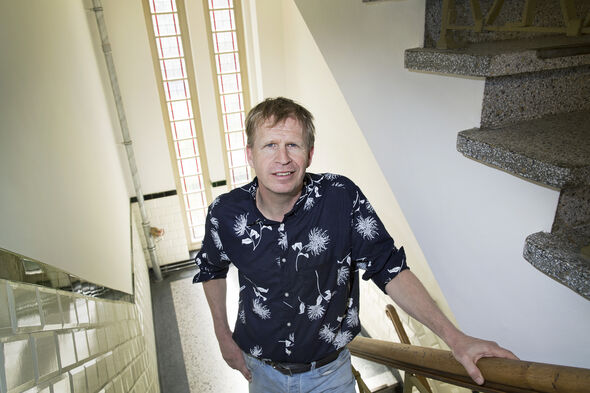
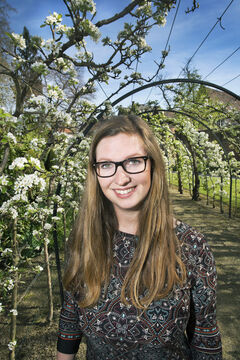
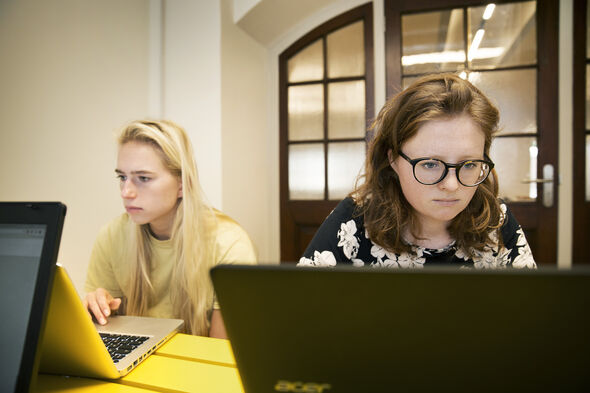

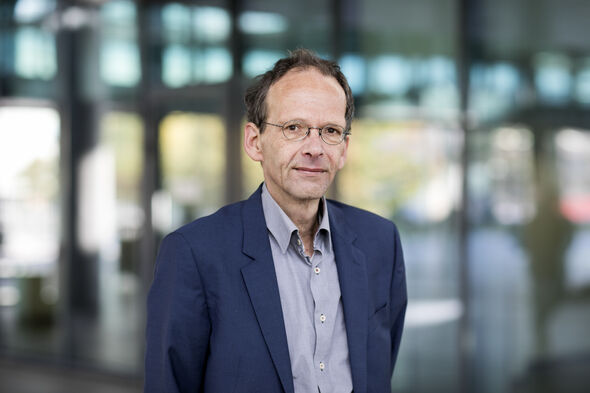
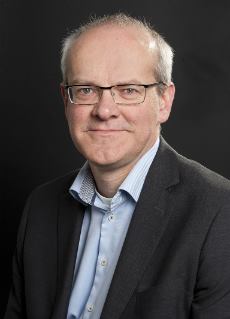
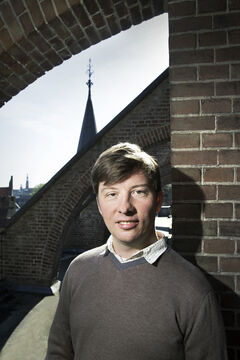
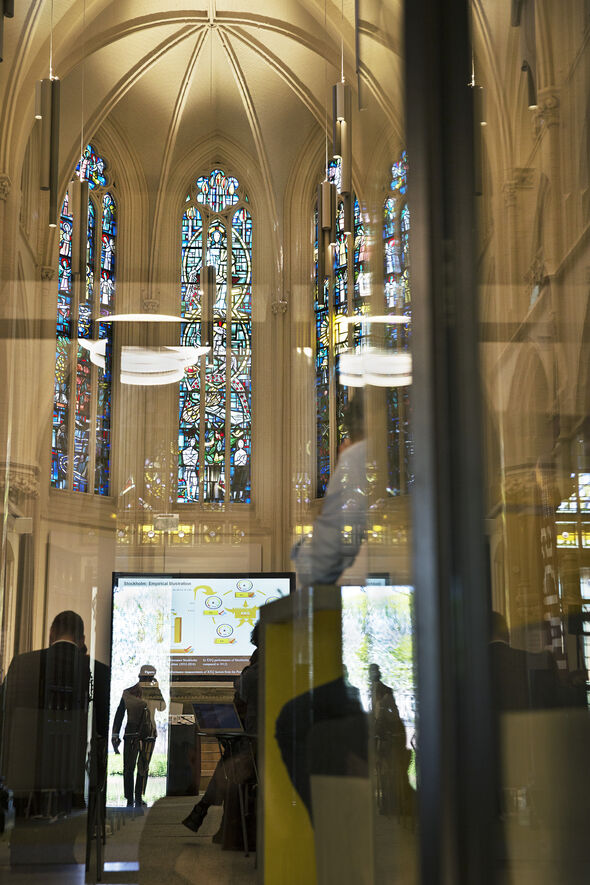
Discussion